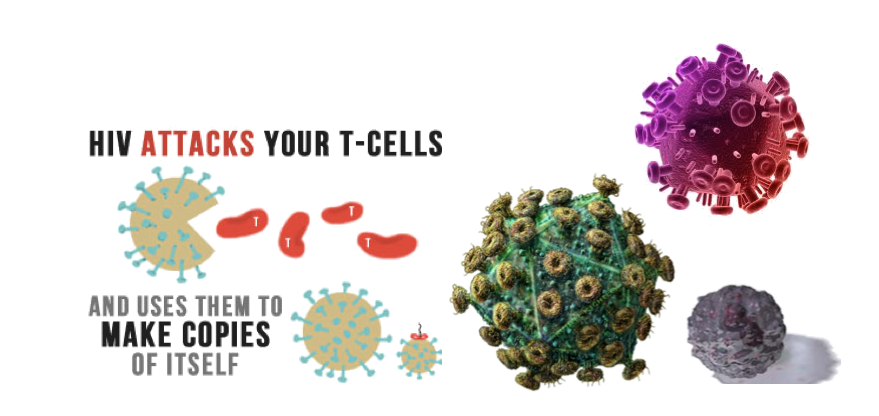What is CD4 Count? Why is it important?
CD4 Count and its importance
What is CD4 Count? A CD4 count is a lab test that measures the number of CD4 T lymphocytes (CD4 cells) in a sample of your blood.
For people living with HIV, it is the most important laboratory indicator of how well your immune system is working and the strongest predictor of HIV progression.
It is helpful to know what CD4 cells are to understand why they are important. They are often called T-cells or T-helper cells, a type of white blood cells that play a major role in protecting the body from infection. They send signals to activate your body’s immune response when they detect “intruders,” like viruses or bacteria.
Once a person is infected with HIV, the virus begins to attack and destroy the CD4 cells of the person’s immune system. HIV uses the machinery of the CD4 cells to multiply or make copies of itself and spread throughout the body.

During your regular check-ups, your HIV care provider will want to know your CD4 count to help keep track of how healthy you are and whether the virus has progressed in your body:
- The CD4 count of an uninfected adult/adolescent who is generally in good health ranges from 500 cells/mm3 to 1,200 cells/mm3.
- A very low CD4 count (less than 200 cells/mm3) is one of the ways to determine whether a person living with HIV has progressed to stage 3 infection (AIDS).
Your CD4 count is also used to help you and your HIV care provider decide when to start antiretroviral therapy (ART).
ART involves taking a combination of HIV medicines (called an HIV regimen) every day. It prevents HIV from multiplying and destroying your infection-fighting CD4 cells. ART can’t cure HIV, but it can help you live a longer, healthier life and reduce your risk of HIV transmission. ART is recommended for everyone with HIV, but the urgency to start ART is greater in people with low or rapidly falling CD4 counts. A falling CD4 count indicates that HIV is advancing and damaging your immune system.
After you start ART, your HIV care provider will use your CD4 count as one way to check how well your medication is working to monitor the effectiveness of your HIV regimen. Your HIV care provider will also monitor your CD4 count to determine whether it has fallen to a level at which you might be at risk for certain opportunistic infections.
THE HIGHER YOUR CD4 COUNT, THE BETTER.
When the amount of HIV in your blood is lowered by ART, it allows the CD4 cells to reproduce and increase in number. The higher your CD4 count, the better able you are to fight HIV and other infections.
When and How Often Do I Need a Cd4 Count?
Your HIV care provider would order a CD4 count at your first visit after you are diagnosed in order to establish a baseline level.
After that, current HIV treatment guidelines recommend that your HIV care provider order a CD4 test every 3 to 6 months when you are starting ART to see how well you are responding to treatment. Depending on your health status, your HIV care provider may switch to every 6 to 12 months once treatment has increased your CD4 levels to higher levels and your viral load is suppressed. If your CD4 count reaches normal levels and your viral load remains suppressed, your HIV care provider may not check your CD4 count unless there is a change in your health or viral load.
Your CD4 count can vary from day to day. It can also vary depending on the time of day your blood is drawn and on whether you have other infections or illnesses, like the flu or sexually transmitted infections (STIs). The trend of your CD4 count (whether it’s rising or falling) over time is what’s really important—not an individual test result.
What is CD4 Count: A SUMMARY
- A CD4 count ranges from 500–1,200 cells/mm3 in healthy adults/adolescents.
- A CD4 count of fewer than 200 cells/mm3 is one of the qualifications for a diagnosis of stage 3 infection (AIDS).
- ART is recommended for everyone with HIV, but the urgency to start ART is greater in people with low or rapidly falling CD4 counts.
- Your CD4 count can vary from day to day. It can also vary depending on the time of day your blood is drawn and on whether you have other infections or illnesses, like the flu or STIs.
- Typically, your HIV care provider will check your CD4 count every 3 to 6 months when you are starting ART. Once your CD4 level rebounds and your viral load is suppressed, your provider may check your CD4 count less frequently.
Source: www.aids.gov